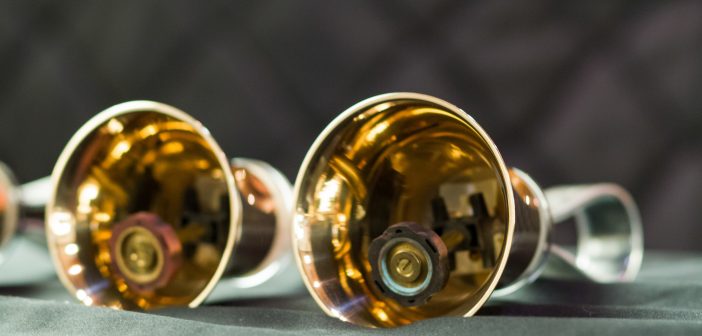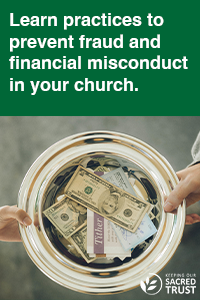Pastor Rosario Picardo tells how selling two old sets of silver handbells that hadn’t been used for 20 years provided a surprisingly large infusion of cash to a fledgling church plant in an old building. He offers suggestions on how to inventory and sell smaller assets that have outlived their usefulness, but may be worth more than you think.
The reality show Hoarders examines the disease many people have of amassing possessions regardless of their value (or lack of it). Hoarders typically have an exaggerated sense that they will someday need all of that junk, and therefore cannot bring themselves to part with it. The results are heaps of useless possessions, anxiety about decisions related to possessions, a constant need for new space in which to hold or organize all their possessions, dysfunctional spaces in which to live and work, and an irrational compulsion to protect their junk from would-be thieves (or cleaners!).
God provided badly needed cash through some handbells that would never be an asset to our church the way they would be to their new owners.
I’d like to suggest that the local church struggles with hoarding on an organizational level. Sometimes items are kept out of a sense of thriftiness. Other times they are kept out of a sense of nostalgia or reverence for church history. These are legitimate feelings. However, like a house that needs to be cleaned out and reordered once or twice a year to stay congruous to the dynamics of human life, a church that wants to better utilize its spaces must clean house. Often, a church keeps things just because it doesn’t know what it has. Some churches haven’t had a workday in years and don’t have a clue what they have in storage. Every few years, a local church can rent out a dumpster or gather items for a rummage sale, thereby maximizing and repurposing space for ministry.
Once, as bills were mounting up while I tried to restart a young church plant in an old building, I decided to inventory all of the church’s assets, namely the property they owned. As I did so, I came across some old silver handbells. I didn’t realize the value of silver at the time, but a friend shared how valuable the handbells were. I didn’t believe him, so I googled it. I was shocked to learn that the going rate was about 5,000 dollars for a set — and we had two sets!
There was no question we had to sell the bells. They had been stashed away in the balcony, and the church’s handbell choir had ceased to exist 20 years prior, so I knew nobody was going to miss them. I listed both sets on Craigslist, and a traditional church in Kentucky bought them for 8,000 dollars.
God provided badly needed cash through some handbells — handbells that would never be an asset to our church the way they would be to their new owners. And, in case you’re wondering, over the next few years at the church, not one person inquired about those missing handbells.
When consulting with pastors who are strapped for cash and working to restart, I often ask them about their assets and mention the handbells. Many chuckle at the story. One pastor took my advice literally and sold his church’s handbells for 10,000 dollars, revenue that funded his church’s music ministry for well over a year!
Take stock of current small assets. Not every church has sets of old silver handbells lying around. But many churches do have items that have been collecting dust ever since the church moved on to a new way of doing things. Have you inventoried your physical assets lately? Perhaps your church has other old music equipment, candleholders, heavy offering plates, or even furniture it is no longer using that could be sold, even for a small amount. Plus, smaller assets like handbells are a lot easier to liquidate than real property.
Auction off historical items. Sell pieces of your church’s history with sentimental value in an auction to give older parishioners or those whose families have attended the church for generations the chance to own a piece of the church forever. When one small church had to replace a few of its old stained glass panels, they worked with a local glass artist who crafted the stained glass into crosses for small window hangings they then offered for $10 each. This was a great way for the church to recycle the glass and offset some of their costs of replacing the windows, all while giving churchgoers the chance to have a piece of the church in their own homes forever!
Glean annually. Invite those super organizers in your church to “clean house” as an annual routine, and then hold a rummage sale. For greater effect, the congregation can be invited to donate and add their own items to the sale with all the money raised going to a specific mission. This may not bring in large sums of money, but it serves a couple of bonus purposes: first, it can bring together a group of people in the church towards a common goal, and, second, it can free up space for better use inside.
Use online sale sites: Sometimes when a church has outgrown a media or technology item, or anything else they may have initially spent a good amount of money on, the assumption is that no one else will want that “old” item, either. Online sale sites are an easy place to assess the value and get a sale for these items.
This article is excerpted from Rosario Picardo’s book Funding Ministry with Five Loaves and Two Fishes (Abingdon, 2016). Used by permission. The book is available through Cokesbury or Amazon.
Related Resources:
- Unclutter Your Church by Dottie Escobedo-Frank
- Church Renewal Requires Property Renewal by Gerald W. Keucher
- Sifting Our Inheritance: What to Keep and What to Let Go by Christine Chakoian






